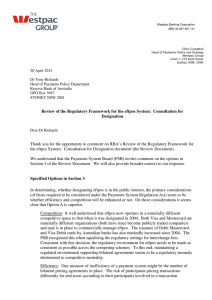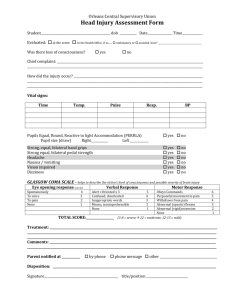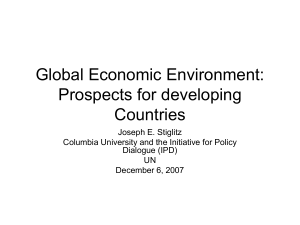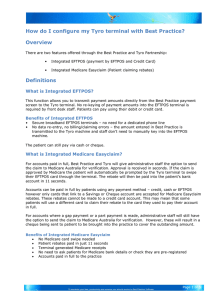Document 10818425
advertisement
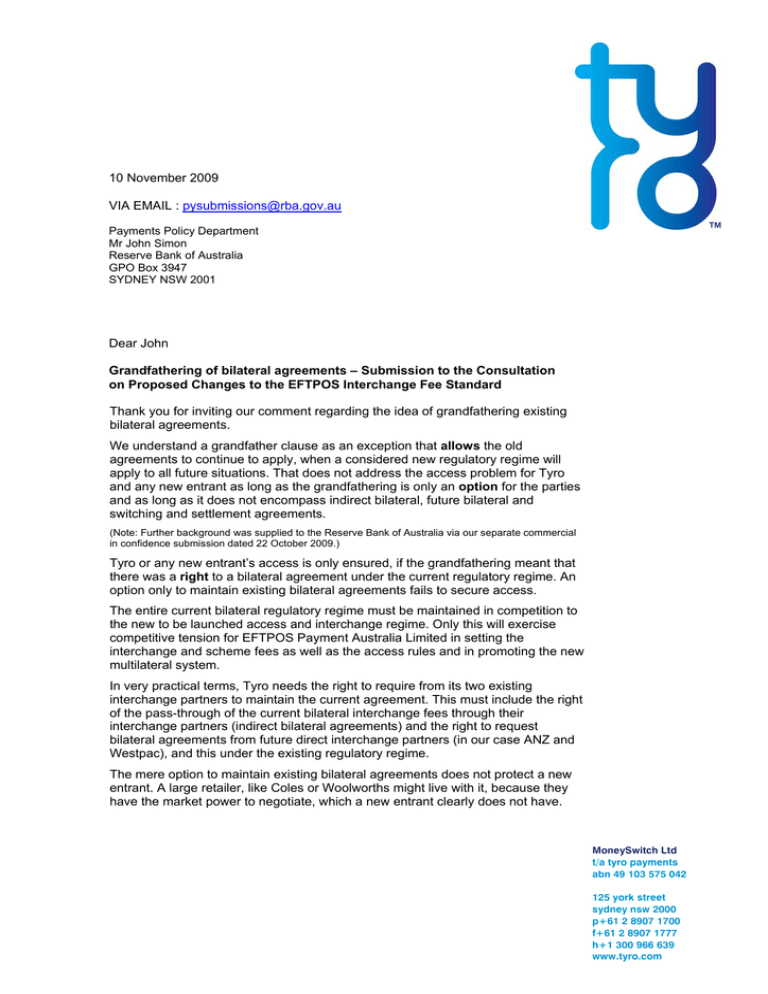
10 November 2009 VIA EMAIL : pysubmissions@rba.gov.au Payments Policy Department Mr John Simon Reserve Bank of Australia GPO Box 3947 SYDNEY NSW 2001 Dear John Grandfathering of bilateral agreements – Submission to the Consultation on Proposed Changes to the EFTPOS Interchange Fee Standard Thank you for inviting our comment regarding the idea of grandfathering existing bilateral agreements. We understand a grandfather clause as an exception that allows the old agreements to continue to apply, when a considered new regulatory regime will apply to all future situations. That does not address the access problem for Tyro and any new entrant as long as the grandfathering is only an option for the parties and as long as it does not encompass indirect bilateral, future bilateral and switching and settlement agreements. (Note: Further background was supplied to the Reserve Bank of Australia via our separate commercial in confidence submission dated 22 October 2009.) Tyro or any new entrant’s access is only ensured, if the grandfathering meant that there was a right to a bilateral agreement under the current regulatory regime. An option only to maintain existing bilateral agreements fails to secure access. The entire current bilateral regulatory regime must be maintained in competition to the new to be launched access and interchange regime. Only this will exercise competitive tension for EFTPOS Payment Australia Limited in setting the interchange and scheme fees as well as the access rules and in promoting the new multilateral system. In very practical terms, Tyro needs the right to require from its two existing interchange partners to maintain the current agreement. This must include the right of the pass-through of the current bilateral interchange fees through their interchange partners (indirect bilateral agreements) and the right to request bilateral agreements from future direct interchange partners (in our case ANZ and Westpac), and this under the existing regulatory regime. The mere option to maintain existing bilateral agreements does not protect a new entrant. A large retailer, like Coles or Woolworths might live with it, because they have the market power to negotiate, which a new entrant clearly does not have. MoneySwitch Ltd t/a tyro payments abn 49 103 575 042 125 york street sydney nsw 2000 p+61 2 8907 1700 f+61 2 8907 1777 h+1 300 966 639 www.tyro.com If the Reserve Bank wants innovation and competition through new entrants, it has to secure access. The only access we have at this point in time is a difficult and broken regime, but a minimum that did allow us to get started, because two banks made an onerous but still commercial arrangement with us to switch and settle with the other banks in the bilateral EFTPOS network. While the expense charged on a new entrant for a direct EFTPOS link was capped to the most efficient cost level in the EFTPOS access regime this has not been done for switching and settlement services, which are currently the only practical access route. The Bank should consider a cap at the most efficient level to ensure access. In conclusion, an unknown future multilateral exchange regime, unknown future EPAL scheme fees and a known risk of a 60 days termination of our current direct and indirect bilateral agreements threatens the tyro business and makes the acquirer-only model unrealistic. An acquirer-only and new entrant needs regulatory certainty around EFTPOS and scheme access, non-discriminatory fee regimes and interchange fees set at a level that limits cross-subsidies at the expense of the acquiring business. Yours Sincerely Jost Stollmann CEO 2
